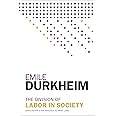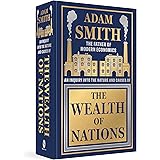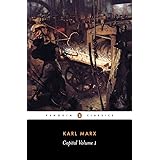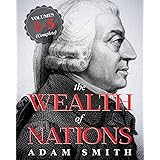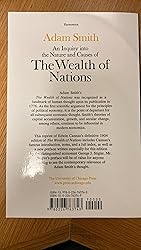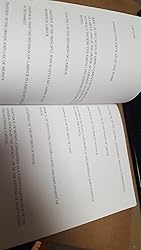
Enjoy fast, free delivery, exclusive deals, and award-winning movies & TV shows with Prime
Try Prime
and start saving today with fast, free delivery
Amazon Prime includes:
Fast, FREE Delivery is available to Prime members. To join, select "Try Amazon Prime and start saving today with Fast, FREE Delivery" below the Add to Cart button.
Amazon Prime members enjoy:- Cardmembers earn 5% Back at Amazon.com with a Prime Credit Card.
- Unlimited Free Two-Day Delivery
- Streaming of thousands of movies and TV shows with limited ads on Prime Video.
- A Kindle book to borrow for free each month - with no due dates
- Listen to over 2 million songs and hundreds of playlists
- Unlimited photo storage with anywhere access
Important: Your credit card will NOT be charged when you start your free trial or if you cancel during the trial period. If you're happy with Amazon Prime, do nothing. At the end of the free trial, your membership will automatically upgrade to a monthly membership.
Buy new:
$19.99$19.99
Buy used: $10.88





Download the free Kindle app and start reading Kindle books instantly on your smartphone, tablet, or computer - no Kindle device required.
Read instantly on your browser with Kindle for Web.
Using your mobile phone camera - scan the code below and download the Kindle app.

 Audible sample Sample
Audible sample Sample 


The Wealth of Nations Paperback – October 27, 2009
Purchase options and add-ons
- Print length692 pages
- LanguageEnglish
- Publication dateOctober 27, 2009
- Dimensions6 x 1.73 x 9 inches
- ISBN-101604598913
- ISBN-13978-1604598919
The Amazon Book Review
Book recommendations, author interviews, editors' picks, and more. Read it now.
Frequently bought together

Similar items that may deliver to you quickly
Product details
- Publisher : Thrifty Books (October 27, 2009)
- Language : English
- Paperback : 692 pages
- ISBN-10 : 1604598913
- ISBN-13 : 978-1604598919
- Item Weight : 2.45 pounds
- Dimensions : 6 x 1.73 x 9 inches
- Best Sellers Rank: #2,169,153 in Books (See Top 100 in Books)
- #2,217 in Theory of Economics
- Customer Reviews:
About the author

Adam Smith (16 June 1723 NS (5 June 1723 OS) – 17 July 1790) was a Scottish moral philosopher, pioneer of political economy, and a key figure in the Scottish Enlightenment.
Smith is best known for two classic works: The Theory of Moral Sentiments (1759), and An Inquiry into the Nature and Causes of the Wealth of Nations (1776). The latter, usually abbreviated as The Wealth of Nations, is considered his magnum opus and the first modern work of economics. Smith is cited as the father of modern economics and is still among the most influential thinkers in the field of economics today.
Smith studied social philosophy at the University of Glasgow and at Balliol College, Oxford, where he was one of the first students to benefit from scholarships set up by fellow Scot, John Snell. After graduating, he delivered a successful series of public lectures at Edinburgh, leading him to collaborate with David Hume during the Scottish Enlightenment. Smith obtained a professorship at Glasgow teaching moral philosophy, and during this time he wrote and published The Theory of Moral Sentiments. In his later life, he took a tutoring position that allowed him to travel throughout Europe, where he met other intellectual leaders of his day.
Smith laid the foundations of classical free market economic theory. The Wealth of Nations was a precursor to the modern academic discipline of economics. In this and other works, he expounded upon how rational self-interest and competition can lead to economic prosperity. Smith was controversial in his own day and his general approach and writing style were often satirised by Tory writers in the moralising tradition of William Hogarth and Jonathan Swift. In 2005, The Wealth of Nations was named among the 100 Best Scottish Books of all time. The minor planet 12838 Adamsmith was named in his memory.
Bio from Wikipedia, the free encyclopedia. Photo by unknown artist [Public domain], via Wikimedia Commons.
Customer reviews
Customer Reviews, including Product Star Ratings help customers to learn more about the product and decide whether it is the right product for them.
To calculate the overall star rating and percentage breakdown by star, we don’t use a simple average. Instead, our system considers things like how recent a review is and if the reviewer bought the item on Amazon. It also analyzed reviews to verify trustworthiness.
Learn more how customers reviews work on AmazonReviews with images
-
Top reviews
Top reviews from the United States
There was a problem filtering reviews right now. Please try again later.
Our Adam, the first man in economist's paradise, only - already 300+ years ago, created and founded all main corner stones on which we still to day are building. Supply and demand, and pursuing one's own best interest were and are the main clue of Smith's doctrines leading to economic well-being. Nothing has changed. The doctrine of supply and demand still helps to consumer being the king, even if the reign is largely different. Smith speaks of wool combers and barley traders, we of mobile phones and air tickets. The same laws are in power, however.
Even if completely enthusiastic about having read this book, I would not recommend it as an exam reading for students and understand very well why it was not included in my list 50 years ago. Why then? In his magnificent work Smith wanders through such an ocean of detailed information that nobody can comprise it. But never does he lose the clue. The conclusions are clear, firm and persuasive. Deficit production leads to rise in price and surplus to reduction. It is as simple as that. All artificial restrictions are finally harmful. That is the core of Smith's message. Very plausible at that time as well as it is to day.
No amount of stars can sufficiently appreciate this bloc of gold in our Western cultural tradition!
Let it be said right off the bat that the big thing Marx gets trashed for has roots right here in the 'W of N:' namely, the Labor Theory of Value. Both Volume One of 'Capital' and 'W of N' spend the first 100 pages or so going over it. Both refer back to it constantly in later pasages. And both must be taken off the table without it. The LTV boils down to this: all value is created by people working and producing goods and services that other people need and/or want. Furthermore, they must produce these goods and services at at least the average level of productivity and at the appropriate level of demand. Otherwise you're working either harder or more easily for your cut of the national pie than you otherwise would. The LTV is so straightforward and intuitive you'd think there wouldn't be much of an argument.
The one thing Smith stresses throughout the book is the need for what he calls 'perfect liberty,' where everyone is allowed to buy and sell what they want from where ever they'd like. With this, resources would be diverted to where they needed to be as quickly as possible so people would stop wasting their time WORKING (see how the LTV operates here?) on things that should be made elsewhere.
It's important to understand that neither the words 'capital' nor 'capitalist' ever occur in this work. This is very important because both words carry baggage Smith would break no bread with. In fact, the main bad guys in this work are the very people we would call 'capitalist' today. They subvert Parliament through bribery and intimidation, protect their own interests at the expense of everybody else in society, and raise unholy hell when workers try to form unions. All the while, of course, they form unions amongst themselves with the express purpose of stabbing the rest of us in the back.
Sound familiar?
Let me give you a modern example of how desperately we need American economists to actually pick up and read this book, as opposed to just talking about what a good boy Adam Smith was. Contrary to the propaganda we're getting out of our media, alternative sources of energy are now ready for prime time. There's nothing the internal combustion engine can do that hydrogen fuel cells can't do better. The price of solar cells has been dropping like a rock for years. And wind power is now the second cheapest source of energy after dirty coal. All we need to do is divert all that money we use to protect our oil resources into building up the economy of scale for these products (i.e. reducing the amount of WORK necessary to build each unit; this is the LTV lurking around again), and turn all these into cheap bulk commodities. We'll also need to use this money to build up the infrastructure necessary to safely deliver and store hydrogen. Then, after these (admittedly) high entry costs (i.e. expenditures of LABOR), we'll have access to unlimited, clean, and cheap sources of energy. The nonsense we have instead, which came to serious crises in 2001 in California with the impeachable collusion of the Bush administration, has nothing to do with Adam Smith's great work. I don't know about you, but I'm pretty tired of socializing the risk while privatizing the profits for this industry. Our current urge to go to war with Iraq precisely reflects the urge of 18th century statesmen to protect the interest of the mercantilist (capitalist!!) masters. This was a tragedy Smith covers quite extensively.
As an added bonus he's a great read. After working so hard on Marx I was very happily surprised.
Karl Marx brought the LTV to a fine polish, going beyond Adam Smith and showing how it translates into the average rate of profit, interest rates, standard of living, etc. He picked up where Smith left off. Also, using the weapon of dialectical materialism (i.e. the logic of motion and change -- the true heart of Marxism), Marx was able to show how capitalism, in fact, negates private property. It would have turned us all into slaves decades ago if not for the better angels or our nature.
The "Wealth of Nations" remains the most truthful defense of the economic science. But remember that Adam Smith also wrote "The Theory of Moral Sentiments"; for Smith, economics was a search to better people's life rather than simply a quest to optimize mathematical functions or estimate variables using econometric models.
To simply associate Smith with expressions such as the "invisible hand," does not do him justice. Take, for example, the opening chapter on the division of labor: first, Smith defends the division of labor as being efficient; then, he defends it as an essential component of the freedom to allocate one's labor to one's talents; finally, he links the division of labor to trade: without the freedom to exchange the fruits of one's labor, the division of labor is meaningless. The point is that Adam Smith defends the rationale for the market, rather than just explain its mechanics.
Anyone studying economics in school would think that economics is all about efficiency; this preoccupation, inevitably, breeds economists who support the market simply because it works. But to read Adam Smith is to enter the realm of an economic science where the ultimate benchmark is not efficiency but human freedom and welfare. That is, probably, what Smith would remark if he were to sit in an economics class today, and why the "Wealth of Nations" is as revolutionary today as it was two centuries ago.
Top reviews from other countries
It is a really huge book (37 hours), but really fascinating. I've enjoyed reading it, and having it read to me. I've still got about two hours to go.
The narrator, Gildart Jackson, is brilliant; his voice, in my mind, brings the author to life.








